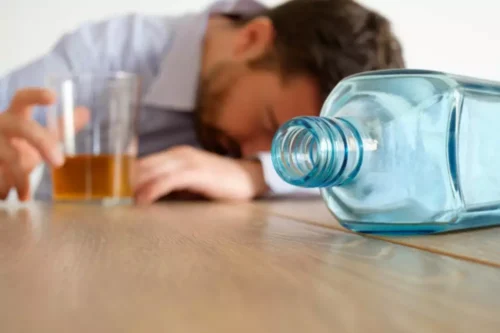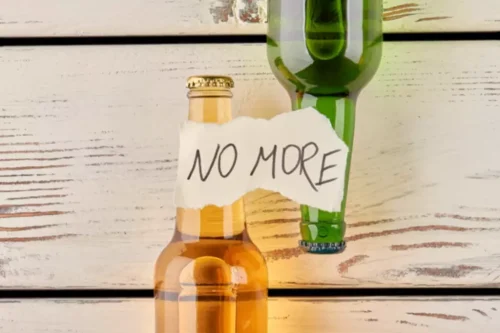
It varies from person to person based on the amounts and frequency of alcohol consumed, genetics, overall health, and lifestyle. For some people, heavy alcohol use can cause kidney damage after years of consumption, while it may happen sooner for others. However, The Lancet published a large-scale study that concluded that consumption of alcohol should be no more than 100 grams of alcohol per week (30), much lower than many countries’ current recommendations. Maintaining a healthy diet and engaging in physical activities can reduce the risk of kidney cancer (31, 32). It’s worth noting that the harmful effects of alcohol may outweigh the potential benefits. Limiting alcohol intake is important to protect your kidneys and overall health.
Can alcohol affect creatinine levels?
If someone does have a failing kidney, they may not even know it about it until only 10 to 15 percent of kidney function remains. And this makes studying kidney diseases difficult, according to Sparks. A simple blood test can measure the levels of toxins and waste products in the bloodstream and tell doctors how efficiently the kidneys are working. Second, the proteinuria detection and diagnosis of CKD can also affect the credibility of the conclusion.
Managing Blood Sugar and Chronic Kidney Disease
Drinking alcohol can also make people dehydrated because it makes the body lose more fluid via pee than we normally would. “So the advice is to drink a glass of water between every glass of alcohol,” says Langham. So it might be easy to think that alcohol is bad for your kidneys because you’re overworking them. If you have specific concerns about alcohol and your kidney health, it’s best to get personal medical care.
Understanding the Relationship Between Alcohol and Kidney Cancer
Please follow individual advice that is set for you by your renal team and dietician, and if you aren’t sure if you should be following any specific diet, please speak with your medical team. Be aware of the particular medication you are taking, as this may also limit how much alcohol you are allowed to drink. Drinking alcohol alongside some medications can cause problems with other organs such as your liver. Try to spread your drinking throughout the week and have at least 1-2 alcohol-free days per week.
Why does my kidney hurt after drinking alcohol?
In addition, many studies have suggested that alcohol consumption can also affect the prognosis of patients with CKD. For example, the prognosis of light-to-moderate drinkers differs from that of heavy drinkers. Patients who are drinking more red wine may also benefit from its cardiovascular protective effects. In fact, IgA glomerulonephritis—acute inflammation of the kidney caused by an IgA immune response—is one of the most common types of primary glomerulonephritis worldwide (D’Amico 1987). This IgA-related kidney disease leads to clinical symptoms of renal injury and eventually progresses into renal failure (Amore et al. 1994; Bene et al. 1988; Pouria and Feehally 1999). Experimental studies suggest that heavy alcohol consumption induces IgA kidney disease (Smith et al. 1990).
Can Kidney Patients eat fruit and vegetables

They have been demonstrated to have ROS scavenging, antiplatelet, anticancer, anti-inflammatory, antidiabetic, antibacterial, antiaging, and cardiovascular and renal-protective effects 105–112. Moreover, other bioactivators in red wine, excluding resveratrol, and those in white wine, also have the function of ROS scavenging and renal protection 7,84,113. Sex, age, primary diseases, initial GFR, individual differences, and dietary structure can all influence the results of a study. Research into alcohol consumption and chronic kidney disease is conflicting, as most research into this looks at otherwise healthy individuals, however, kidney injury can occur due to excessive alcohol use. Excessive alcohol consumption can put a strain on the kidneys as about 10% of alcohol that is ingested is excreted into the kidneys in its original form. In this study, we assessed the causal effects of alcohol use on the risk of ESKD or related comorbidities in a UK Biobank prospective cohort.

Alcohol Consumption Recommendations and Limits

The right treatment option for kidney pain related to alcohol depends on the cause. For example, a person with a UTI that spreads to the kidneys can develop sepsis, a dangerous infection of the blood. The timing of the pain could be a coincidence, or the alcohol could have intensified an existing problem. There are no specific studies suggesting does alcohol damage the kidneys that certain types of alcohol are worse on the kidneys than others. In addition to triggering telltale hangover symptoms like headache, nausea and fatigue, alcohol can also lead to dehydration, gastrointestinal discomfort, risky behavior and poor sleep, says Diaz. “In severe cases, excessive consumption can lead to life-threatening alcohol poisoning, marked by vomiting, seizures and slowed breathing,” she emphasizes.
- Alcohol can worsen the side effects of chemotherapy and other cancer treatments, such as nausea, dehydration, diarrhea, and mouth sores.
- Moreover, women with a lower activity of gastric alcohol dehydrogenase have lower gastric first-pass metabolism of alcohol, which also leads to a higher concentration of alcohol than in men 92.
- Additionally, drinking excessively has been shown to increase the risk of accidents and injuries.
- In this review, we focused on the effect of ethyl alcohol on the kidneys and the effect of drinking on patients with CKD, and summarized the clinical and experimental studies.

A person may feel intense back pain or pain in their genitals or stomach as the body attempts to pass the stone. If the body does not pass the stone, a person can develop a severe infection or blockage. However, more research is needed into the link between alcohol use and kidney injury. According to the United Kingdom’s National Health Service (NHS), a person should consult a doctor if they experience symptoms consistent with kidney disease. This article describes how alcohol may harm the kidneys and considers the level of alcohol consumption necessary to cause harm. They filter waste from your blood, regulate the balance of water and minerals in your body and produce hormones.
Treatments for acute kidney injury
Drinking heavily can increase the risk of high blood pressure and Type 2 diabetes, for example. Both of those conditions are the most common causes of chronic kidney disease in the United States. Having more than three drinks in a day (or more than seven per week) for women, and more than four drinks in a day (or more than 14 per week) for men, is considered “heavy” drinking. Heavy drinking on a regular basis has been found to double the risk for kidney disease. An inverse observational association between alcohol use and the risk of chronic kidney disease (CKD) or end-stage kidney disease (ESKD) has been reported.
Leave a Reply
You must be logged in to post a comment.